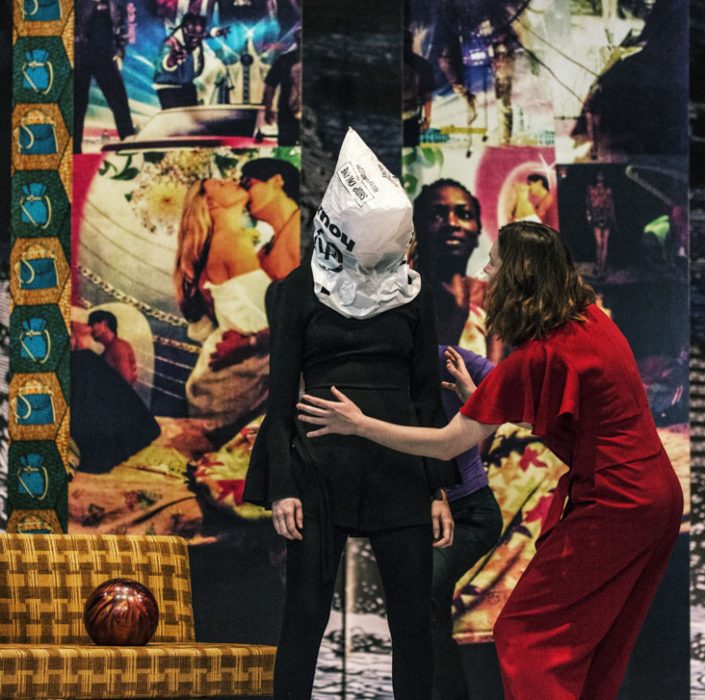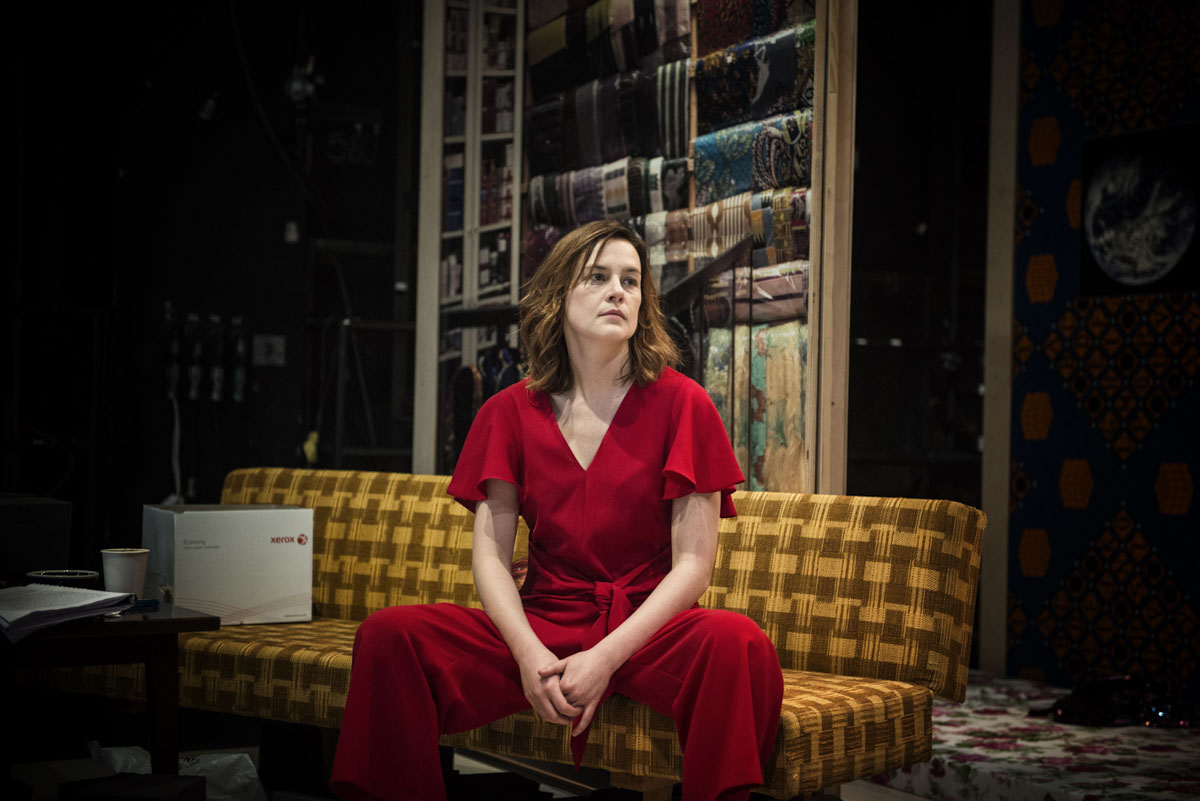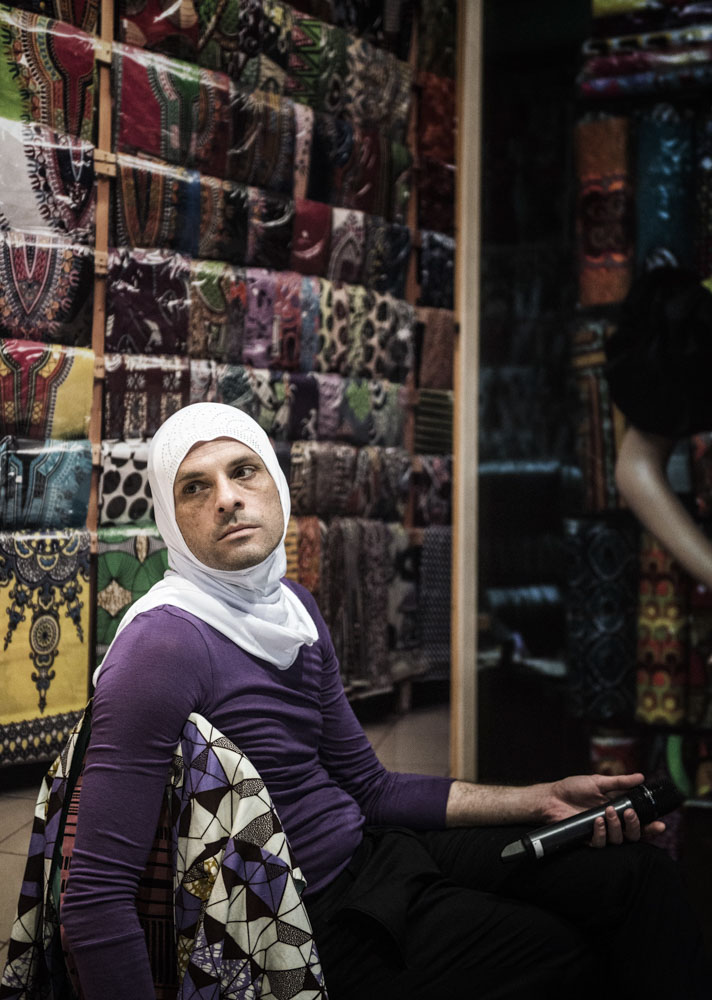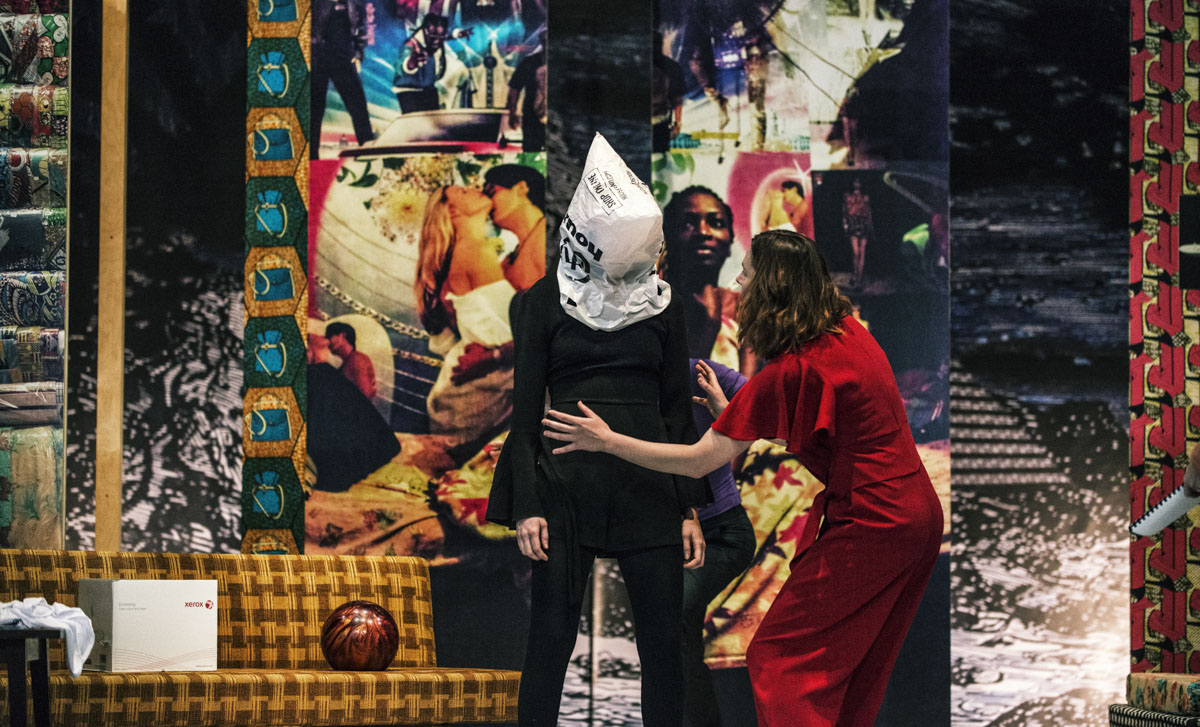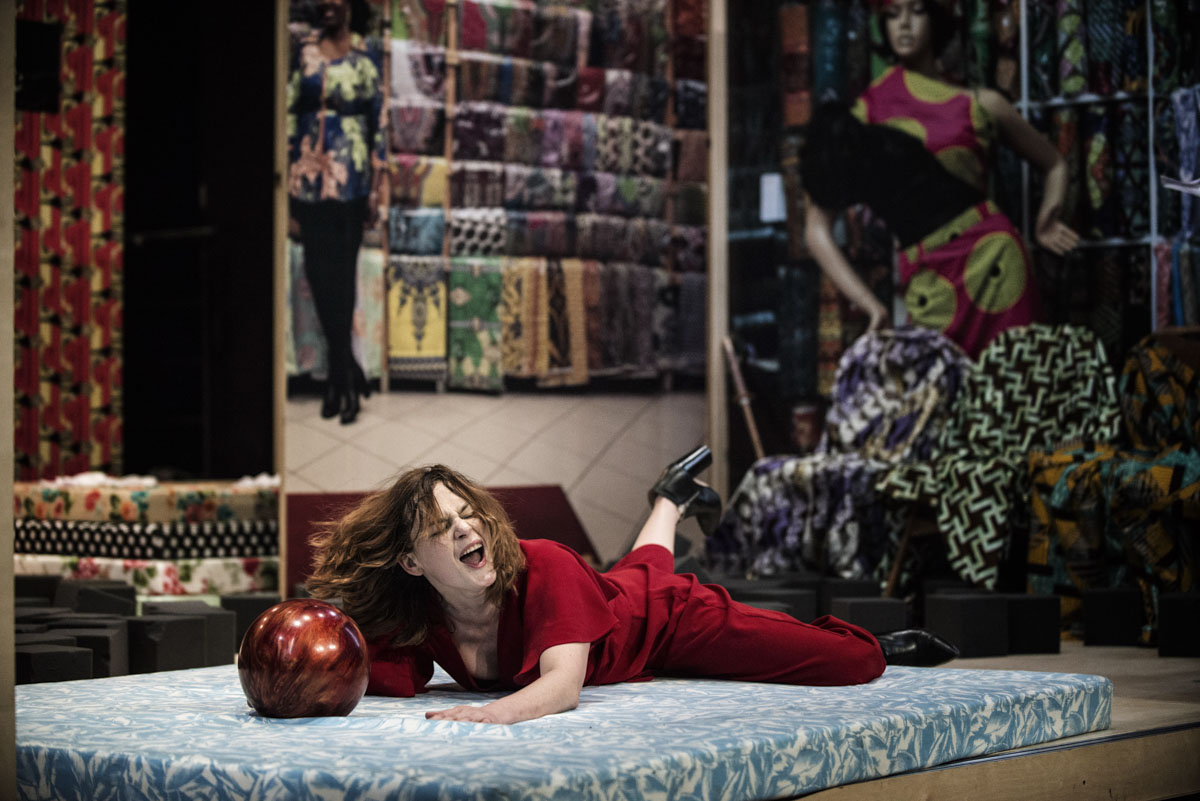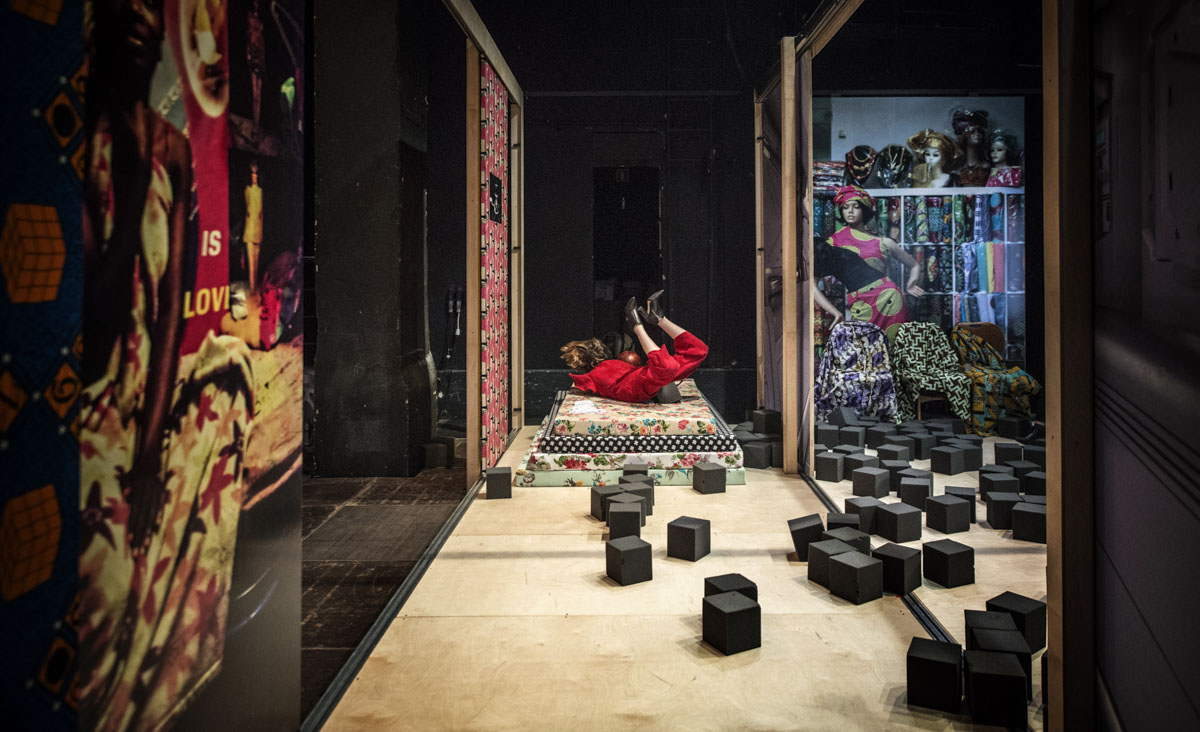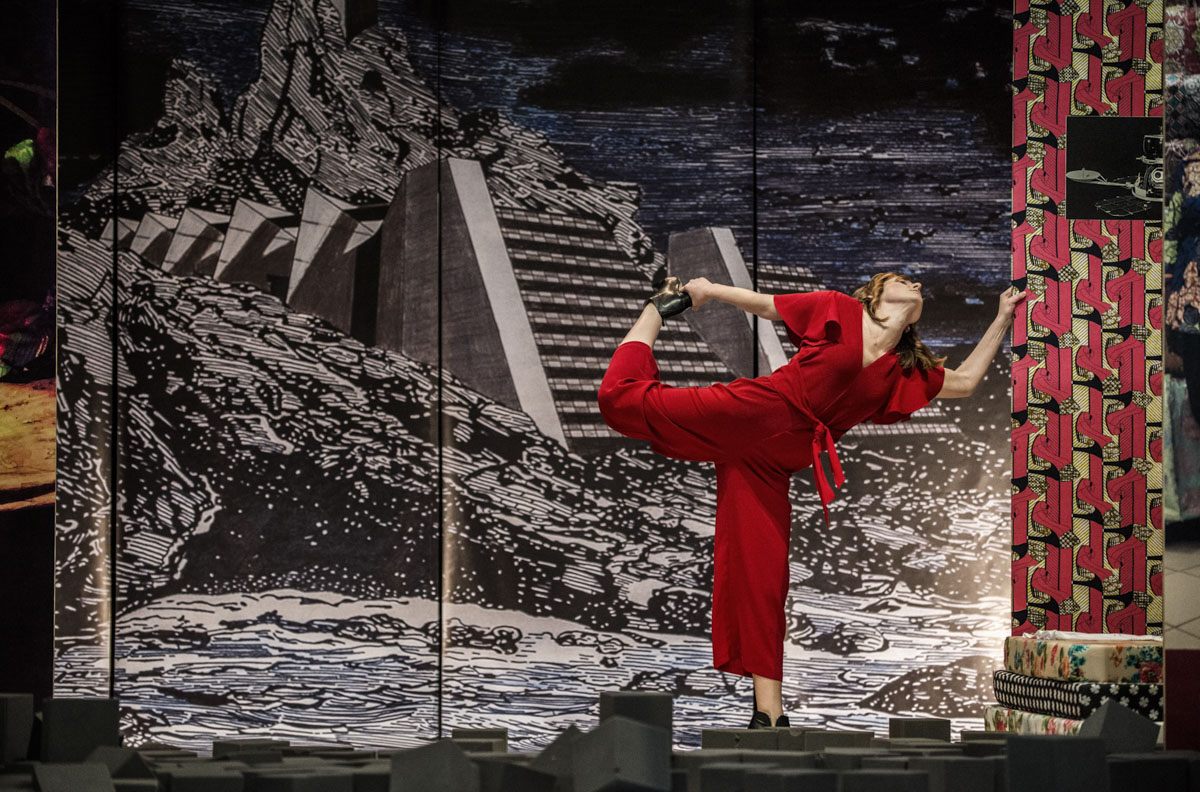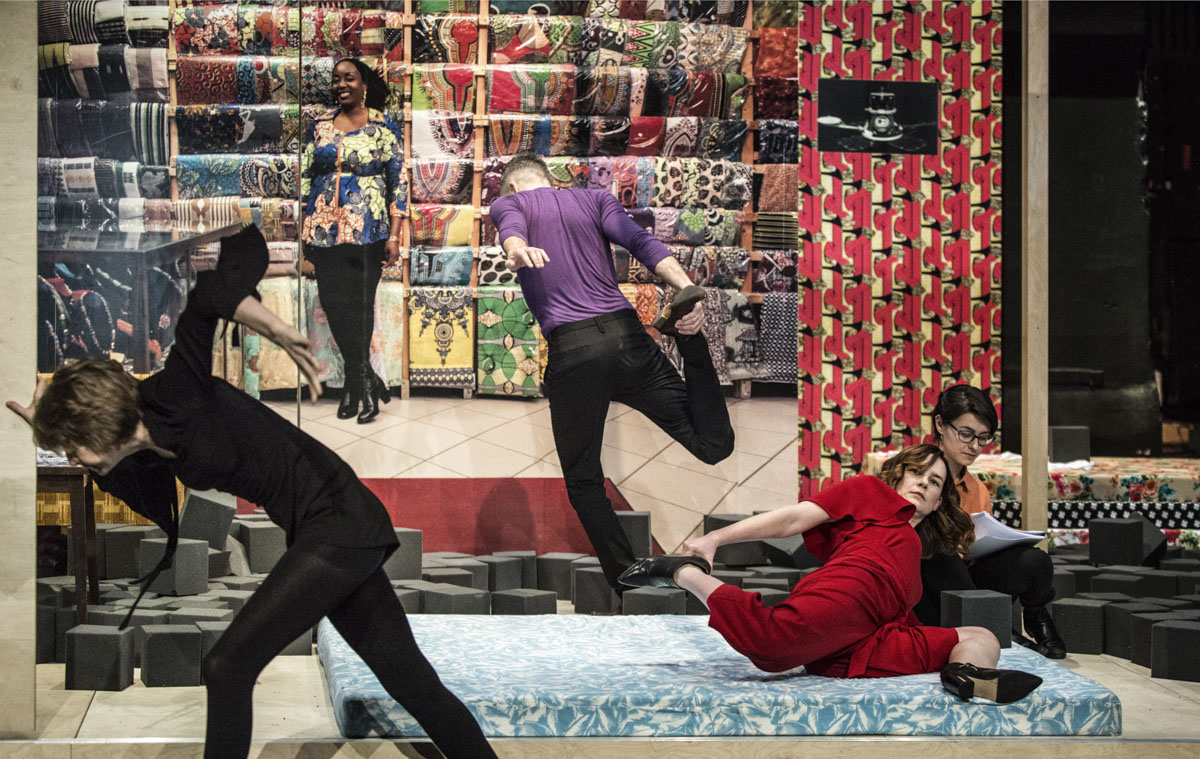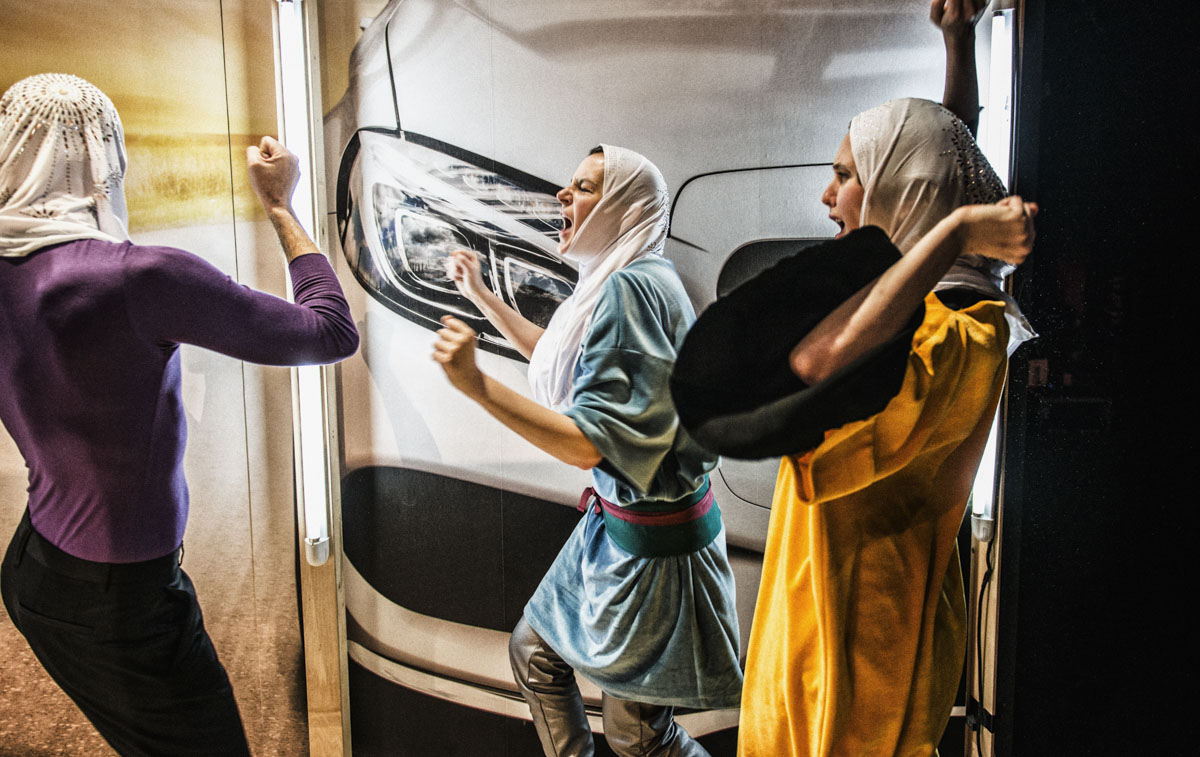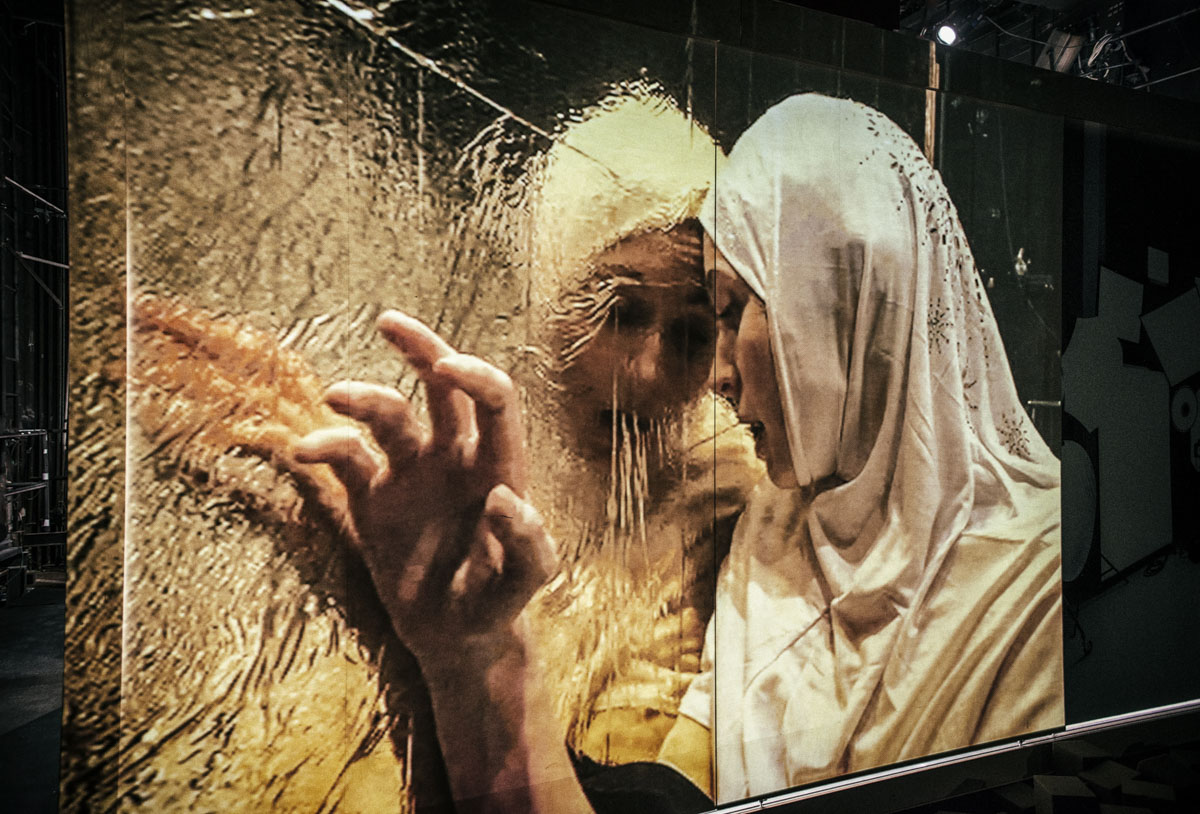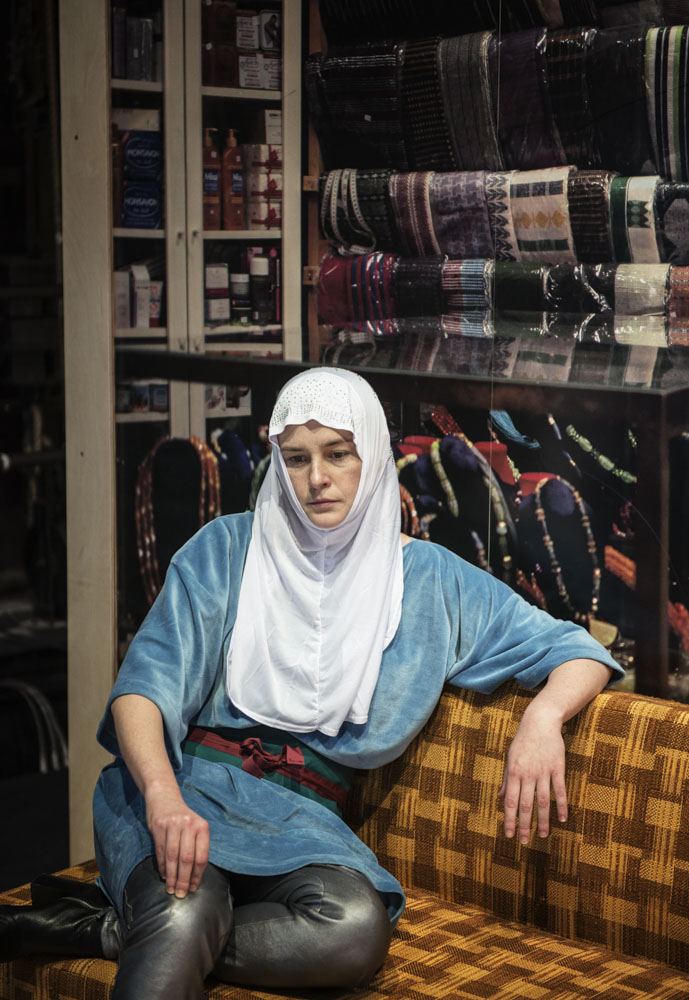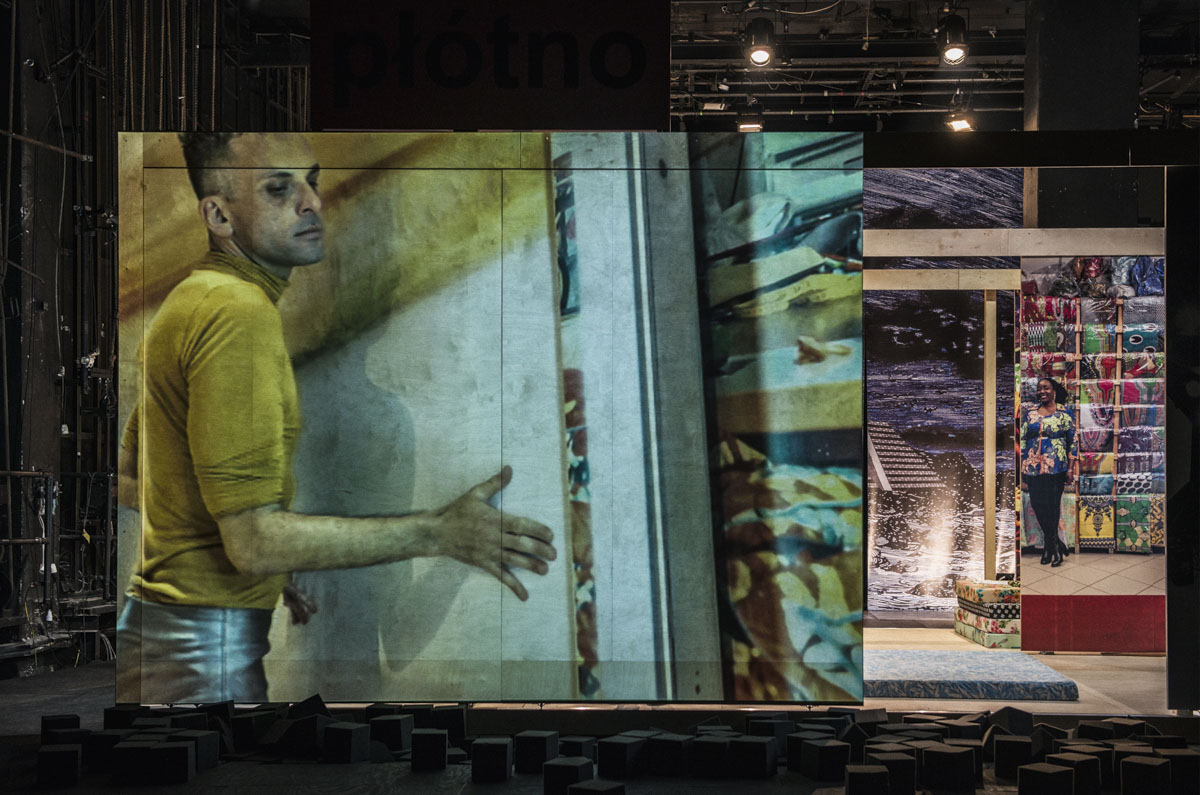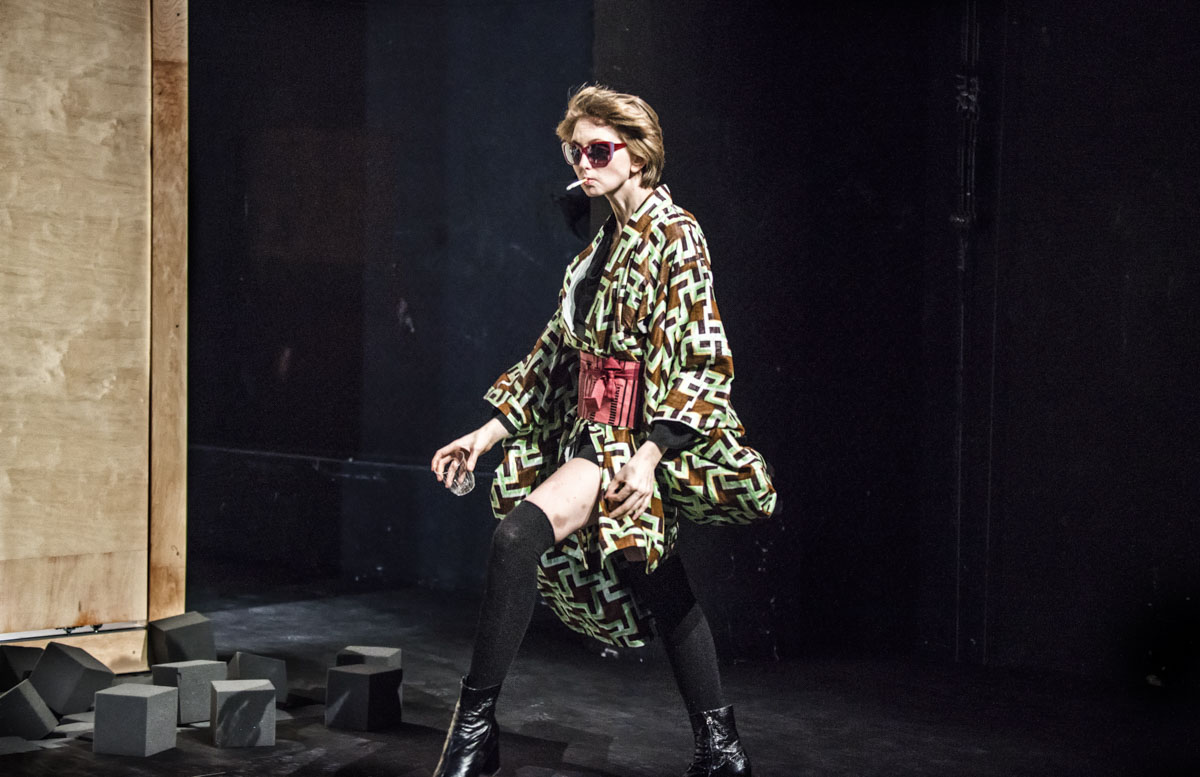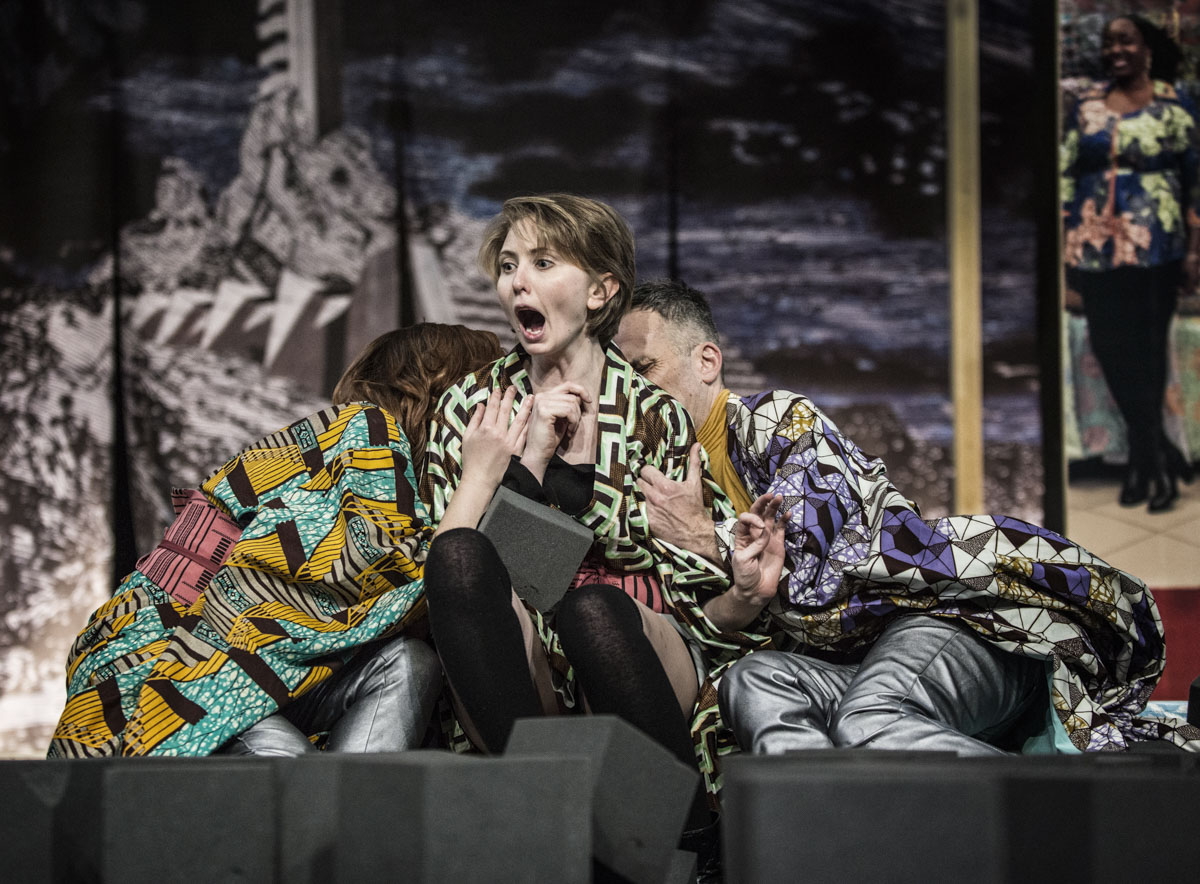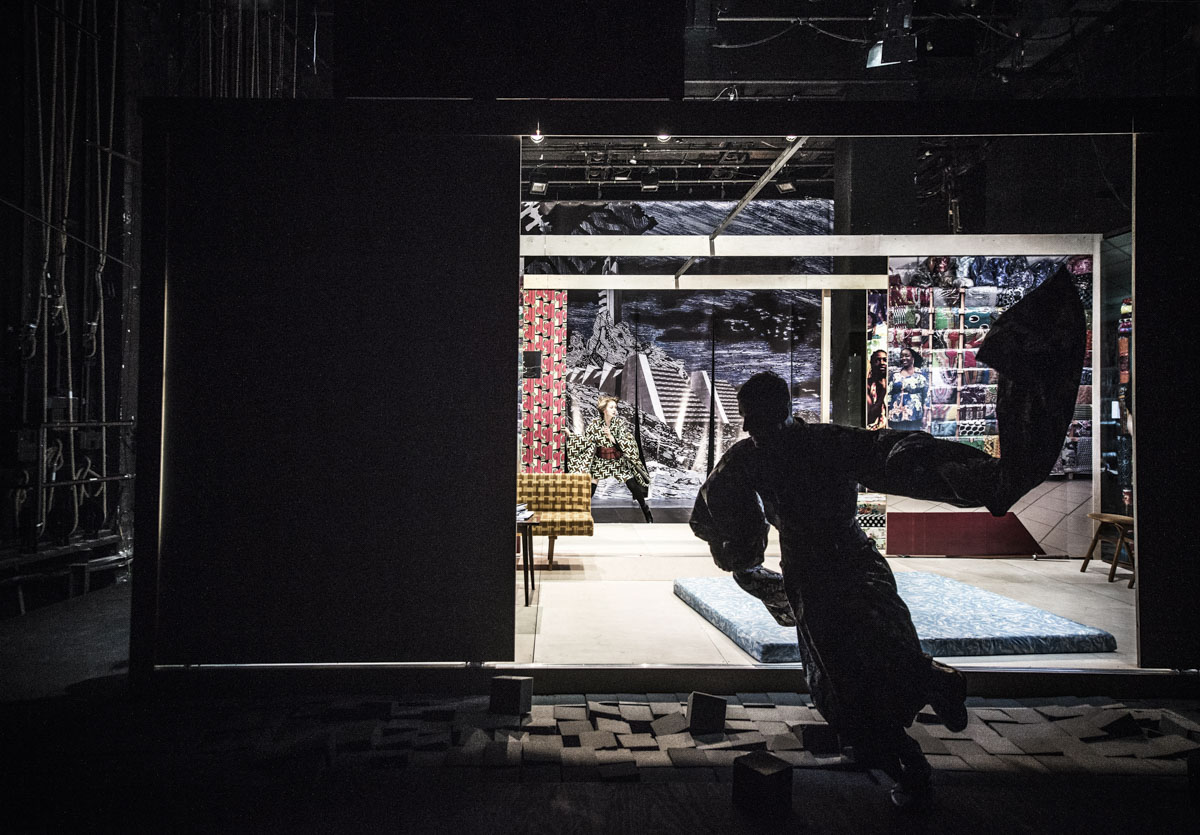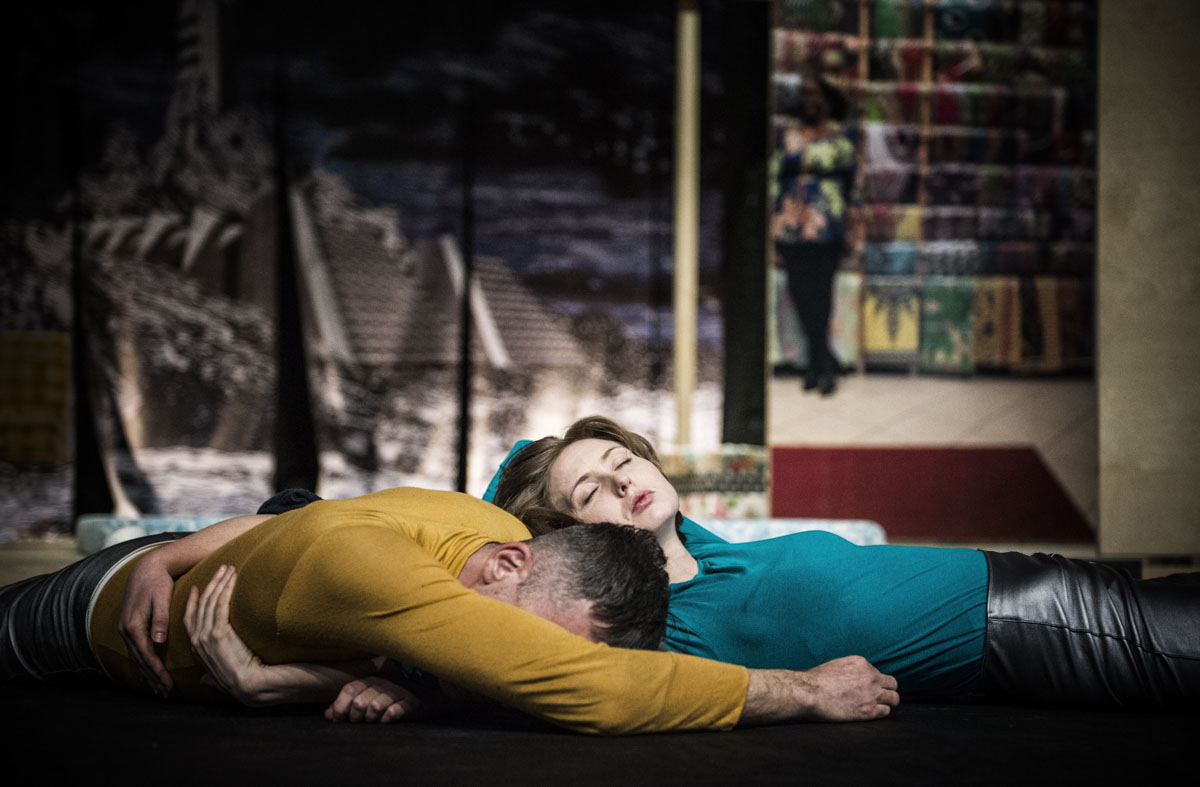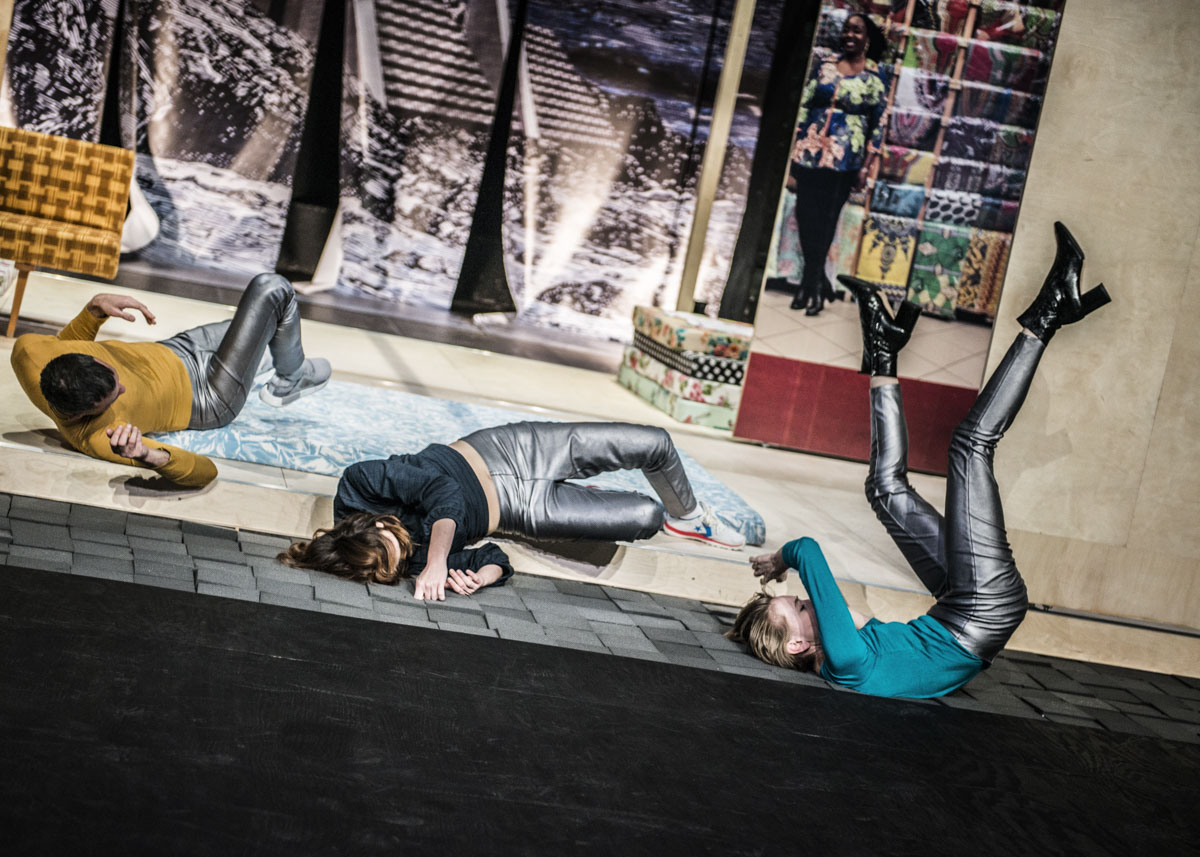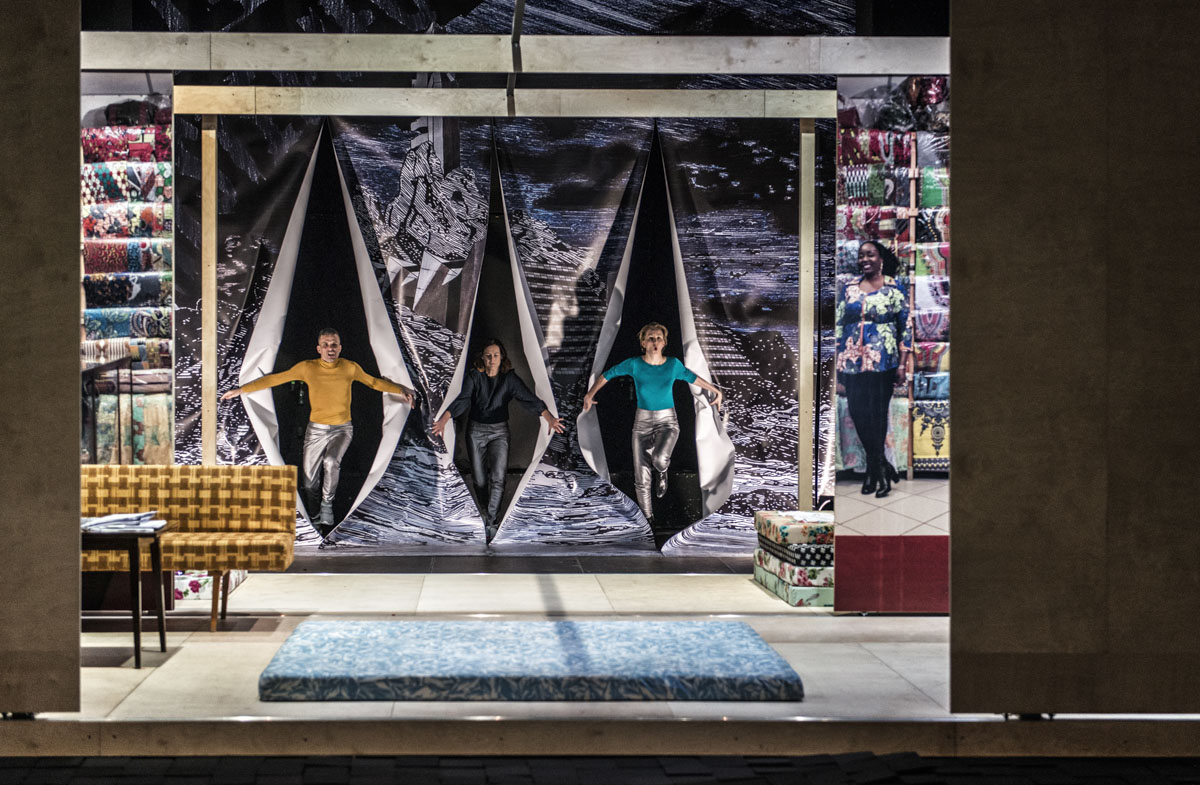-
Director
René Pollesch
-
Premiered
December 8, 2017
-
Duration
1 h 45 min (no intermission)
-
Tickets
Normal ticket: 80 PLN
Concessionary ticket: 65 PLN
Normal group ticket (over 10 people): 70 PLN
Concessionary group ticket (over 10 people): 55 PLN
Please be informed that there are strobe lights used in the performance!
About
Even if you don’t carry the latest iPhone in your pocket, technologies from Palo Alto – the heart of Silicon Valley, affect your life. Unlimited access to knowledge through the Internet, total digital control, new branches of e-businesses and the collapse of old analogue economy, virtual entertainment and online hate… all of that has changed the modern world. Are they a salvation or a threat? Can we exploit their real potential?
The latest production by René Pollesch, a distinguished director and dramatist from Berlin, is a journey to the origins of civilizational revolution that started in California in the 1960s. The performance is an attempt at understanding where the colonial expansion and the search for new territories have led the western civilization to. Our guide is Grace Slick, an American ‘60s rock star, hippie movement icon and symbol of the sexual revolution. Psychedelia and online business, sexual revolution and the space race, virtual worlds and start-ups meet in this perverse performance. “California / Grace Slick” is Pollesch’s third production in TR Warszawa after “Ragazzo dell’ Europa” and “Jackson Pollesch”.
For organized post-gymnasium school groups we offer introductory workshops to the performance (please contact the education department edukacja@trwarszawa.pl for more details).
From the director:
“There is only one image, one photograph that shows all of humanity. All but three people.
It is often said that the student protests were the defining event of 1968, but the true sign of that time is the photograph taken by the Apollo 8 crew. By those three astronauts. It marks the moment when the progress of mankind starts to lose its thread.
It is the moment when the outward expansion into space to which we owe that picture, that universalistic icon, turns back on itself, creating the ultimate inside.
From that point onwards, the Earth no longer has an outside.
At the same time, in California, the wave of westward colonial expansion encounters a physical, geographic border – the Pacific Ocean – and starts looking for new territories to conquer: technology, the non-material fabric of virtual reality, and psychology. California is at the forefront of progress that opens the irresistibly alluring epoch of withdrawal and amplification of the within. We are witnessing it today.
Californian ideology, Californian network capitalism, Californian avant-garde – have taken the rest of the capitalist world by storm.”
René Pollesch (born in 1962 in Friedberg, Hessia) is an author/director who directs only his own plays. He studied at Gießen University’s drama department. In 1996, he received a working grant at the Royal Court Theatre in London and in 1997 he was awarded the Akademie Schloss Solitude, Stuttgart, residency grant. He was a resident writer at Luzerne Theatre in 1999/2000 and at the Schauspielhaus in Hamburg in 2001.
In 2002 German theatre critics voted him best German dramatist. He won the Mülheim Dramatists’ Award in 2001 for www-slums and for Cappuccetto Rosso in 2006. In 2012 he received the prestigious Else Lasker-Schüler Dramatists Award for his complete works.
From 2001 to 2007 he was head of the Prater of the Volksbühne at Rosa-Luxemburg-Platz, Berlin and from 2007 until the end of the season 2016/17 Pollesch directed his texts regularly at the Berliner Volksbühne at Rosa-Luxemburg-Platz, where alongside Frank Castorf he was responsible for the artistic profile of the theatre. He also cooperates regularly with the Deutsches Schauspielhaus in Hamburg, the Kammerspiele in Munich, the Burgtheater in Vienna, the Zürich Schauspielhaus and the State Theatre of Stuttgart. Furthermore, he has worked on his texts with acting companies in Santiago de Chile, Stockholm, Tokyo and Warsaw (TR Warszawa).
His publications include www-slums (Rowohlt Verlag, Reinbek 2003); Liebe ist kälter als das Kapital, Stücke – Texte – Interviews/ Love is colder than capital: plays- texts – interviews (Rowohlt Verlag, Reinbek 2009); Kill your Darlings: Plays (Rowohlt Verlag, Reinbek 2014).
Cast
Creators
text and direction: René Pollesch
translation: Karolina Bikont
set and costume design: Nina von Mechow
-
In the set design the following photographs are used:
1. Bewegung Nurr (A. Hofstetter/ Chr. Steuer/ L. Stoff), Fanta Wave, 2005
2. A. Hofstetter, F. Göpfert, L’île Mystérieuse, 2013 (Tannhäuser Tor)
3. Zorana Mušikić, IS LOVE, 2012, in the photo a student of Yabatech College in Lagos, Nigeria
4. Andreas Deinert, Nina von Mechow, interior of a bilkiss creation shop in berlin, 2017, / courtesy of Adjayi Barikissou-Mohamed (3 photos)
4. Earth seen from Apollo 8, 1968, © Image Science & Analysis Laboratory, NASA Johnson Space Center
5. Lunar orbiter lunar probe, 1966, fot./ photo: Jay Friedlander, © NASA/NSSDCA
6. Lighting Technology © René Marks
-
All rights in “Kalifornia / Grace Slick” are exclusively represented by Rowohlt Theater Verlag, Hamburg, Germany: theater@rowohlt.de

Production
director’s assistant: Karolina Gębska
stage manager: Katarzyna Gawryś-Rodriguez
production manager: Katarzyna Białach
Gallery
Magda Hueckel photo
Reviews
-
“The performance by Pollesh is one of the most interesting statements of 2017. It proves that one can make political theatre without paternalistic preaching, nostalgia for nothing specific, an escape into convenient narrations or catchy slogans.”
-
“The actors are brilliant. Wasilewska, Tyndyk, Podsiadlik are trying to describe this world using various methods, interpretations, conventions. (…) All three of them roam this world with great unconstraint, devoting themselves totally to their tasks.”
-
“This performance ridicules the egocentrism underpinned by Google and Instagram, which concerns (directly or indirectly) almost all of us.”
-
“And this is probably the most important lesson that Pollesch gives us. (…) A lesson about suspicion – political theater in the deepest possible sense of the word.”
